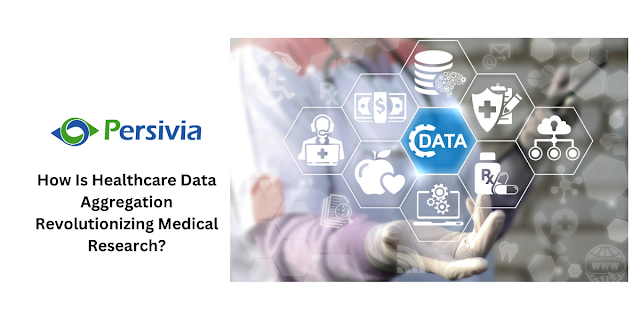How is Healthcare Data Aggregation Revolutionizing Medical Research?
In the pursuit of medical breakthroughs, researchers have
discovered a formidable ally: data aggregation. Like a fearless conqueror,
this process fearlessly harnesses the vast depths of healthcare data,
unraveling its hidden mysteries to transform the landscape of medical research.
With each byte of information assimilated, a new frontier of knowledge emerges,
challenging conventional wisdom and propelling us toward a future where the
disease is thwarted, treatments are personalized, and patient care knows no
bounds.
Enhancing Research Capabilities through
Data Aggregation in Healthcare
·
Amplifying Research
Scope
Healthcare data aggregation enables researchers to access an extensive array of patient
data, including electronic health records (EHRs), clinical trials, genetic
information, and more. This broadens the scope of research studies and
facilitates comprehensive analysis.
·
Breaking Down Data
Silos
Previously, data silos hindered collaboration and impeded
research progress. Through aggregation, disparate data sources are harmonized,
allowing researchers to seamlessly combine and analyze information, yielding
more accurate and comprehensive insights.
Unearthing Critical Insights through
Healthcare Data Aggregation
·
Advanced Analytics
Leveraging powerful analytics tools, data aggregation in
healthcare unlocks the potential to identify patterns, correlations, and
trends that were previously hidden. Researchers can extract valuable insights,
detect emerging healthcare patterns, and formulate evidence-based
interventions.
·
Precision Medicine
Aggregated healthcare data promotes the making of personalized
restorative plans by assessing individual patient attributes, genetical
profiles, and prior medical records. This approach fosters more targeted
interventions, enhancing treatment efficacy and patient outcomes.
Better Patient Outcomes with Data Aggregation
in Healthcare
·
Early Disease
Detection
By integrating and analyzing large-scale patient data,
healthcare professionals can identify early indicators and risk factors for
various diseases. This proactive approach allows for timely interventions,
potentially preventing disease progression and improving patient outcomes.
·
Drug Development
and Safety
Through this data accumulation, researchers gain access to
comprehensive patient data, supporting the evaluation of drug efficacy and safety
profiles. This helps in optimizing drug development processes and identifying
potential adverse reactions in specific patient populations.
Bottom Line
With its ability to break down data silos, accelerate
medical discoveries, and enhance patient outcomes, data aggregation is paving
the way for a new era of healthcare advancements. One such innovative platform
is Persivia, a central provider of healthcare data aggregation solutions. By
harnessing the power of data, Persivia empowers researchers and healthcare
professionals to unlock transformative discoveries and deliver personalized
care, revolutionizing the future of medical research. Come & explore a new
era of possibilities with us today.



Comments
Post a Comment